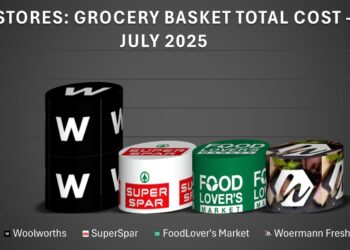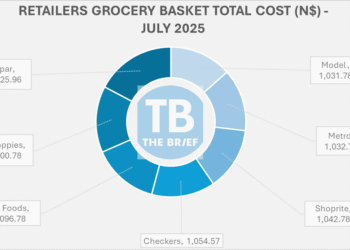
Your debt problem may be a small one that is just beginning or it may have already escalated into something unmanageable. In whatever situation you find yourself with your debt, the first step is identifying that you have a problem.
You frequently spend more than you earn in a month
If you don’t know or care how much you owe you can’t be in control of your debt. When you take out debt you should be acutely aware of how much you owe, how you will repay it, how long it will take and how much interest you will repay in total.Â
You are borrowing to repay your debts
If you are borrowing more money to repay your debts, you are in serious trouble. The cycle will eventually result in you being unable to make all the repayments and your interest costs will be mounting. If you are in this situation, it is time to make serious plans to cut your expenses so you can reduce your debt or you may need to go under debt review.
You cannot afford to pay your living expenses after your debt repayments
If your debt repayments leave you with too little to live on after cutting out the luxuries, it is probably because you are over-indebted. If a credit provider gave you more credit than you can afford to repay, you may be declared over-indebted and the debt may be suspended.You are over-indebted if you are unable to meet your repayments given what you earn, your future earnings and your obligations. If a court finds you over-indebted it may order that your debt be suspended with no interest accruing or that the debt be restructured.
You are delaying payments for necessities
If you are not keeping up on payments for necessary expenses such as school fees or insurance, you probably also have a debt problem.
You are hiding your spending
If you are hiding your spending from your partner or family, you probably know you are spending more than you earn and you are probably making ends meet with debt. But is not likely to end well. Face up to your problem, cut your spending and repay the debt before it becomes a problem. Cutting your spending is easiest if you have an honest conversation with your partner or family so they can support your decision.
You are losing sleep, feeling hopeless or spending impulsivelyÂ
Debt that is out of control will make you feel hopeless resulting in depression and anxiety. It is very stressful dealing with threats of having your car or home repossessed or your water or electricity cut. This stress can make you ill and create problems focussing at home and at work. It is possible that in order to deal with these bad feelings you may spend more impulsively to lift your mood but that good feeling will only last for a short while. You need a longer, sustainable way deal with your debt – formally or by yourself. You just need to make the commitment and have the willingness to do what is required.
You pay the minimum on your debts
If you are only paying the minimum on credit card or an overdraft, it is likely that your debt will snowball as the interest costs add up. Paying the minimum on long-term debt such as a home loan may be necessary initially when you are young and starting out in your working life. But the sooner you can increase your repayments and work towards being debt free, the quicker you will take control of your financial situation and be able to start investing and growing wealth.
You are denied credit
You may be denied credit because the credit you have applied for is more than you can afford to repay. But you may also be denied credit because when the credit provider assessed you it found you already have as much credit as you can afford. If you have the maximum credit you can afford and are looking for more, you have a problem.Â
Your repayments don’t reduce your debt
If your repayments are only matching your interest and not reducing the amount you owe, you need to increase your repayments or stop borrowing more on, for example, a credit card. Your repayments must repay some of the principal debt you owe or you will never extinguish your debt.Â
You borrow from your home loan to support your lifestyle
If you are dipping into your home loan to pay for groceries, clothes, transport, holidays or any necessities or luxuries, you are going backwards. You should as you get older be paying off your home loan and accumulating wealth rather than ratcheting up your debt.
You are using expensive short-term credit to survive
If you are using pay day loans, personal loans and loan sharks to borrow money regularly you have a problem. Your aim should be to live within your means, to save for things you need and to have enough emergency funds to cover any financial crisis. If you are not yet there, use cheaper forms of credit such as your home loan or credit card wisely. Borrow the minimum and pay it off as soon as you can.
You have skipped repayments
If you have been unable to keep up with your repayments and have defaulted on a credit agreement, it is likely to be a sign you are in trouble. Perhaps a once-off event caused your financial problem and you can recover, but if a financial problem caused you to skip a payment you are probably living too close to the edge and should consider setting up an emergency fund.
You avoid phone calls, mails or email, messages or the doorbell
If you are avoiding calls, mail and messages from your credit provider, you have a problem. It is probably because you know you have skipped a payment, you are still not able to pay and don’t want to admit it. If you are having problems repaying your debt it may be hard to admit, but being honest and negotiating with the credit provider to find a more manageable way to repay will ultimately be much easier than ducking the calls and having the credit provider hand you over to a debt collector.
You are borrowing to gamble or speculate
If you are borrowing money to gamble or take bets, you have problem because you have no certainty that you will win enough to repay the debt. Similarly, if you borrow to invest in a high risk investment such as a single share, rather than a diversified portfolio of shares, you are also likely to end up with a problem, as the share may not deliver the expected returns, but the debt will certainly incur interest.-fin24
Â










